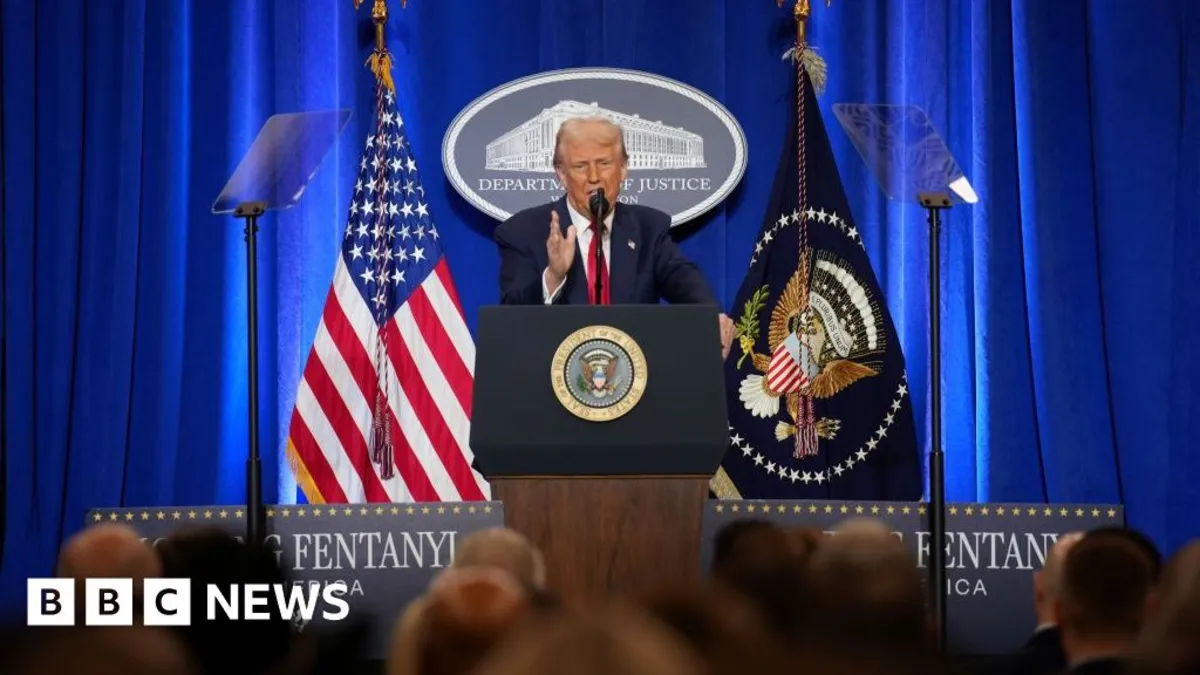
On Saturday, the US government executed a controversial operation that involved placing hundreds of Venezuelans on planes destined for a notorious mega-prison in El Salvador, purportedly housing members of criminal gangs. Following the flight's departure, a federal judge intervened, ordering the planes to return, but the directive was ultimately disregarded, leading to a significant diplomatic incident.
After the planes took off, Judge James Boasberg verbally instructed government lawyers to return the aircraft, regardless of the means – whether by turning around or other methods. However, the government's response was to continue with the flight, prompting a swift reaction from El Salvador's President Nayib Bukele, who took to social media to mock the situation, sharing a post that included a laughing emoji.
While the details regarding the identities of the deported individuals remain sparse, it has been reported that a significant number are Venezuelan nationals. The Trump administration claims these individuals are all affiliated with Tren de Aragua, a well-known transnational criminal gang. In contrast, attorneys representing some deportees argue against this characterization, and human rights organizations have raised alarms over the apparent lack of due process in these deportations.
This incident has ignited serious concerns regarding the White House's willingness to defy federal court orders, potentially setting the stage for a constitutional crisis. In the framework of the United States' system of checks and balances, federal courts have the authority to review executive actions, ensuring they adhere to laws passed by Congress. A court order is legally binding, and failure to comply can lead to civil or criminal penalties.
White House officials have defended their actions, asserting that they did not intentionally ignore the court's ruling. They contend that the oral nature of Judge Boasberg's order rendered it unenforceable and that the planes had already departed the US by the time the directive was issued. Legal experts are closely monitoring how the current administration responds to judicial challenges, particularly as the Trump administration appears to be testing the limits of executive power.
Elora Mukherjee, the director of the Immigrants' Rights Clinic at Columbia Law School, expressed concerns that the administration's blatant disregard for court orders jeopardizes the checks and balances system established by the U.S. Constitution. The lack of adherence to judicial directives threatens the integrity of American democracy, she warned.
Judge Boasberg's ruling was prompted by a lawsuit filed by five Venezuelans challenging their removal under the Alien Enemies Act of 1798. This legislation grants the president sweeping powers to detain and deport individuals from enemy nations without the usual legal processes. Reportedly, over 130 deportees were removed under this act, raising questions about the legality and ethics of such actions.
At a subsequent court hearing, Judge Boasberg sought clarity regarding the timing of the flights in relation to his order. Trump administration officials maintained that they respect court directives while arguing that oral orders are not enforceable as injunctions. The judge has demanded detailed accounts of the flights, with a follow-up hearing scheduled for later in the week.
Frustration is mounting within the White House and among conservative circles, who view judicial interference as an overreach of authority. President Trump has publicly criticized federal judges for obstructing his executive orders, emphasizing the need for a resolution from the Supreme Court, which currently holds a conservative majority.
As the situation unfolds, the implications of this deportation incident extend beyond the immediate legal challenges. With the Venezuelan deportees already in El Salvador, Judge Boasberg's ability to affect their fate may be limited, yet he could pursue sanctions against officials if he finds they willfully ignored his order.
White House Press Secretary Karoline Leavitt defended the administration, stating that a single judge cannot dictate the movement of aircraft transporting individuals deemed threats to national security. This ongoing conflict between the executive branch and the judicial system could shape the future of presidential power and immigration policy in the United States.